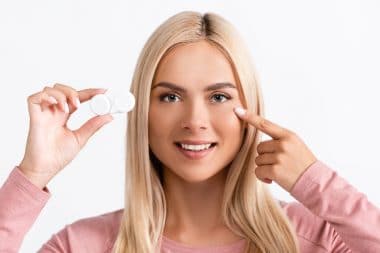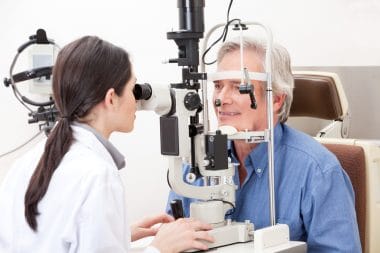Age related macular degeneration is one of the leading causes of blindness in the elderly population. This eye disease will gradually destroy the sharp, central vision of the eye. This is the main part of your vision. Without the central vision, you will no longer be able to read, drive or perform routine daily tasks.
Macular degeneration affects the part of the eye called the macula. The macula is located right in the center of the retina. The retina is the tissue that lines the back of the eye and it is very light sensitive. The job of the retina is to convert light or images into electrical impulses and send these impulses to the brain.
There are two types of macular degeneration. There is wet age related macular degeneration and there is dry age related macular degeneration. The type of macular degeneration you have will determine how fast you can lose your eyesight.
Wet age related macular degeneration happens because blood vessels behind the retina will start to form underneath the macula. These blood vessels have a tendency to leak fluid and sometimes blood.
When the vessels behind the macula begin to leak fluid, this will raise the macula from its normal spot. This will damage the macula quickly and loss of central vision will occur. This type of age related macular degeneration is sometimes referred to as advanced age related macular degeneration.
Dry age related macular degeneration occurs when light sensitive cells in the macula slowly break down. This cell breakdown will cause central vision to diminish. This type of age related macular degeneration usually occurs in one eye. Over time, the other age may be affected with dry age related macular degeneration. Unfortunately, there is no way of knowing if both eyes will be affected and the cause of dry age related macular degeneration is not known.
The most common form of age related macular degeneration is the dry form of degeneration. Over 85% of the people with age related macular degeneration have the dry form of macular degeneration.
There is no guaranteed cure for wet or dry age related macular degeneration. If you have wet macular degeneration, laser treatments and injections can slow down the vision loss.
If you have the advanced form of dry age related macular degeneration, there is no treatment. If you are not in the advanced stage, your doctor may prescribe specific daily amounts of antioxidants. This formulation is not a cure for dry age related macular degeneration. This specific formulation of antioxidants will not restore your vision but it may slow down the progression of advanced dry age related macular degeneration.
If you notice any changes in your vision, you should see your eye care professional right away. The sooner you get a diagnosis the sooner you can start treatment.







Reply